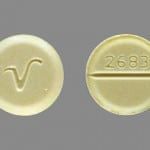Drug Class: Antianxiety Agent
Table of Contents
- Overview
- How to Take It
- Side Effects
- Warnings & Precautions
- Drug Interactions
- Dosage & Missing a Dose
- Storage
- Pregnancy or Nursing
- More Information
Overview
Valium (diazepam) is is used for general anxiety disorders, panic disorders and can be used before surgery to relax you. This medicine may also be used to prevent seizures, as a muscle relaxant, due to its calming effect, and for patients coming off of alcohol. It may also be used during certain medical procedures to cause memory loss.
This medicine works by increasing a chemical in your brain (gamma-aminobutyric acid or GABA) that calms you.
This information is for educational purposes only. Not every known side effect, adverse effect, or drug interaction is in this database. If you have questions about your medicines, talk to your health care provider.
How to Take It
Follow the directions your doctor has given you. This medicine can be taken on an empty stomach, or with food or milk. Do not stop this medicine abruptly with talking to your doctor. Avoid uninterrupted and prolonged use of this medicine.
Side Effects
Side effects that may occur while taking this medicine include:
- clumsiness
- short term memory loss
- anxiety, depression
- drowsiness
- headache
- double vision
- lightheadedness
- dizziness
- fatigue
- constipation
- nausea
Contact your doctor immediately if you experience:
- loss of consciousness
- difficulty breathing
- trouble speaking
- slurred speech
- confusion
- painful urination
- itching
- chills
- hyperexcitability
- fever
- seeing, hearing, or feeling things that are not there
Warnings & Precautions
- Avoid alcohol with this medicine because of the additive drowsiness effects.
- Talk to your doctor if you have glaucoma, kidney or liver disease, history of seizures, or asthma.
- Contact your doctor immediately if you experience persistent sore throat, yellowing skin or eyes, abdominal or stomach pain, nausea or vomiting, dark urine, or fever.
- Do NOT drive a car or perform other tasks that may be dangerous until you know how this medicine affects you.
- Contact your doctor immediately if you experience mental or mood changes, slurred speech, clumsiness, difficulty urinating, trouble walking, changes in sex drive, trouble walking, tremor, or problems with sleeping.
- This medicine may be habit-forming. Misusing medicine that is habit-forming may cause addiction, overdose, or death.
- For an overdose, seek medical attention immediately. For non-emergencies, contact your local or regional poison control center at 1-800-222-1222.
Drug Interactions
Talk to your doctor or pharmacist if you drink alcohol or take other sedative medications including barbiturates or opioid pain medications. cimetidine (Tagamet), valproic acid (for seizures) and some antidepressants; Prozac, Paxil, and Zoloft can increase these effects and side effects of diazepam.
Dosage & Missed Dose
Take Valium exactly as directed by your doctor. Do not stop taking this medication on your own.
Valium is available in extended-release capsules, tablets, and liquid form. It can be taken with or without food.
Extended-release capsules should not be crushed or broken, and they should be swallowed whole.
In tablet form, Valium comes in 2-, 5-, and 10 mg pills.
Storage
Keep this medication in the container it came in, tightly closed, and out of reach of children. Store it at room temperature and away from excess heat and moisture (preferably not in the bathroom). Throw away any medication that is outdated or no longer needed.
Pregnancy/Nursing
Tell your doctor if you are pregnant or nursing before taking this medication. Do not start or stop taking Valium during pregnancy before consulting your doctor. This medicine may cause harm to an unborn baby, but having a seizure during pregnancy could harm both the baby and mother.
More Information
For more information, talk to your doctor, pharmacist, or health care provider, or you can visit this website, https://www.nlm.nih.gov/medlineplus/druginfo/meds/a682047.html for additional information from the manufacturer of this drug.

